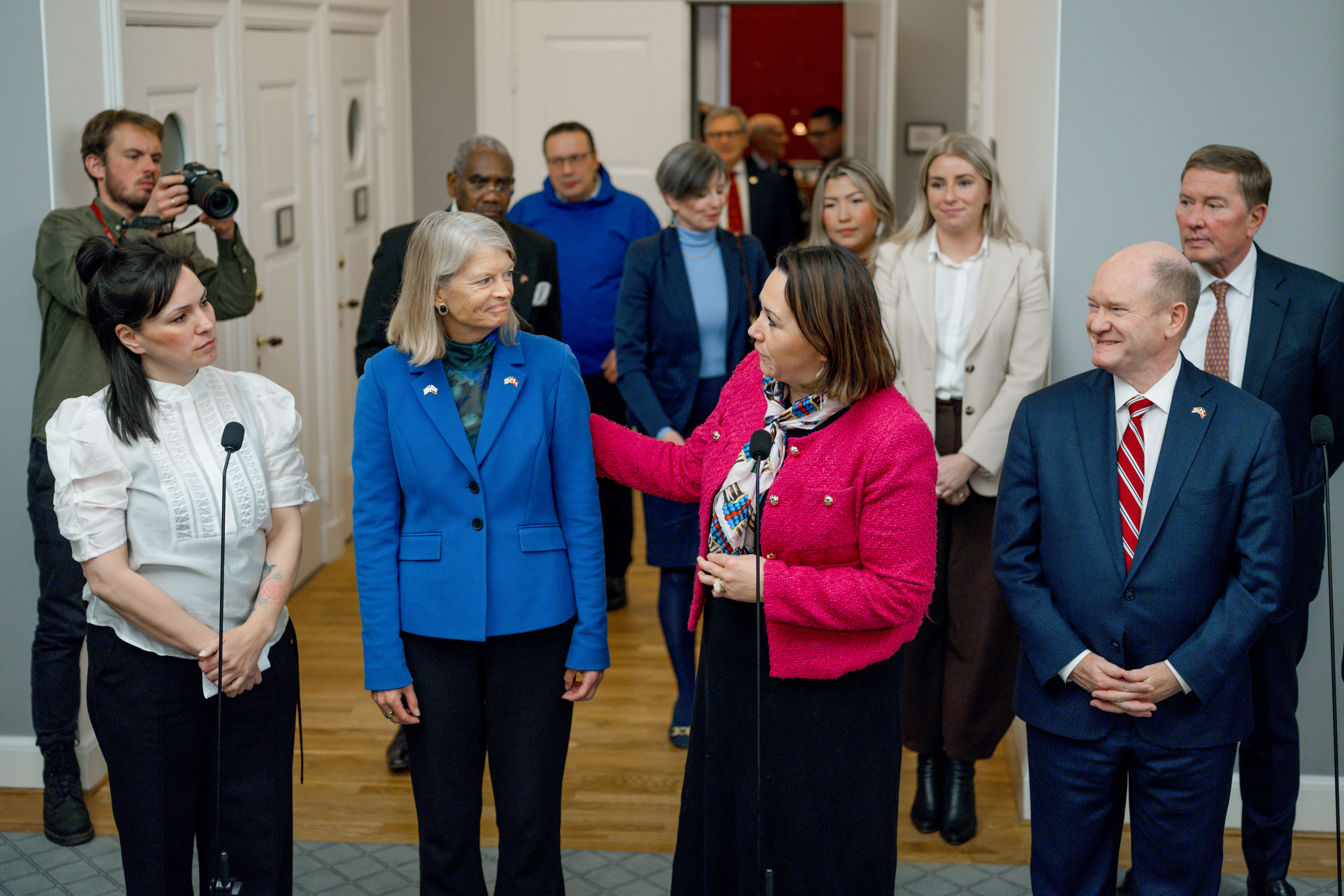Doctors still seeking cure for brain cancer that struck former Utah Rep. Mia Love
Mia Love, the first Black Republican woman elected to Congress, was diagnosed with glioblastoma in early 2022.
She died in Utah on Sunday at age 49, her family reported on the social media site X.
Love’s death offers a reminder that doctors have made little progress in treating this form of brain cancer, which is diagnosed in more than 12,000 people each year in the United States. Most die within two years.
“The last incremental step forward was a new chemo regimen in 2005,” says Dr. Michelle Monje, a professor of pediatric neuro-oncology at Stanford Medicine.
Progress has been slow because there are “more hurdles” when it comes to treating cancers that occur in the brain instead of the rest of the body, says Dr. Matthias Holdhoff, an associate professor of oncology at Johns Hopkins Medicine.
For example, he says, it’s hard to get cancer drugs into the brain, which is protected by a membrane called the blood-brain barrier. Also, treatments that use a patient’s own immune system to attack glioblastoma cells have been thwarted because this form of cancer creates what Holdhoff calls an “immune-suppressive environment” around tumor cells.
At the same time, though, there have been “enormous advances in understanding the disease,” Monje says, thanks largely to research funded by the National Institutes of Health and other federal agencies.
Both Holdhoff and Monje say what scientists are learning about glioblastoma is pointing to a range of promising new treatments.
A not-so-rare cancer
Glioblastoma starts in star-shaped cells called astrocytes, which are found in the brain and spinal cord. Astrocytes are glial cells, which protect and support neurons — the brain cells that allow thinking and movement.
Glioblastoma is the most common type of malignant brain tumor. It is also the cancer that caused the deaths of both Sen. John McCain in 2018 and Sen. Edward Kennedy in 2009.
Currently, surgery, chemotherapy, radiation therapy and immune therapy have limited effectiveness against this form of brain cancer.
But scientists say they now have a much better understanding of why glioblastoma is so deadly and how it might be slowed down or stopped.
Some advances in the field have come from Monje’s own lab, which discovered that mental activities like thinking caused glioblastomas to grow faster.
That’s because these cancer cells “become part of the nervous system,” Monje says.
As a result, the tumor cells can send signals to neurons that make them more active. And active neurons secrete a substance that acts like fuel to accelerate tumor growth.
Monje’s team showed that reducing levels of this substance halted tumor growth in mice. The team also demonstrated that reducing communication between neurons and cancer cells in mice made tumors grow more slowly.
“That’s very hopeful,” Monje says, adding that it may be possible to use existing brain drugs to accomplish this in people.
Another promising approach involves a relatively new type of immunotherapy that genetically modifies immune cells called CAR T cells. This “might lead to more effective ways to treat these cancers,” Holdhoff says.
Scientists are also finding better ways to get existing cancer drugs into the brain, Holdhoff says. These include the use of particles so tiny they can slip through the blood-brain barrier and technologies like ultrasound, which can temporarily disrupt the barrier.
“Right now we have a plethora of novel approaches and clinical trials,” Holdhoff says. “We are highly motivated.”
Trump says he’s pursuing Greenland after perceived Nobel Peace Prize snub
"Considering your Country decided not to give me the Nobel Peace Prize… I no longer feel an obligation to think purely of Peace," Trump wrote in a message to the Norwegian Prime Minister.
Trump has rolled out many of the Project 2025 policies he once claimed ignorance about
Some of the 2025 policies that have been implemented include cracking down on immigration and dismantling the Department of Education.
U.S. lawmakers wrap reassurance tour in Denmark as tensions around Greenland grow
A bipartisan congressional delegation traveled to Denmark to try to deescalate rising tensions. Just as they were finishing, President Trump announced new tariffs on the country until it agrees to his plan of acquiring Greenland.
Can exercise and anti-inflammatories fend off aging? A study aims to find out
New research is underway to test whether a combination of high-intensity interval training and generic medicines can slow down aging and fend off age-related diseases. Here's how it might work.
The 2026 Olympics are the most widespread in history. See what’s happening where
Competitions will be hosted at 25 venues spanning an area of more than 8,000 square miles. Here's what's happening at each of the four main clusters.
High-speed trains collide after one derails in southern Spain, killing at least 21
The crash happened in Spain's Andalusia province. Officials fear the death toll may rise.






